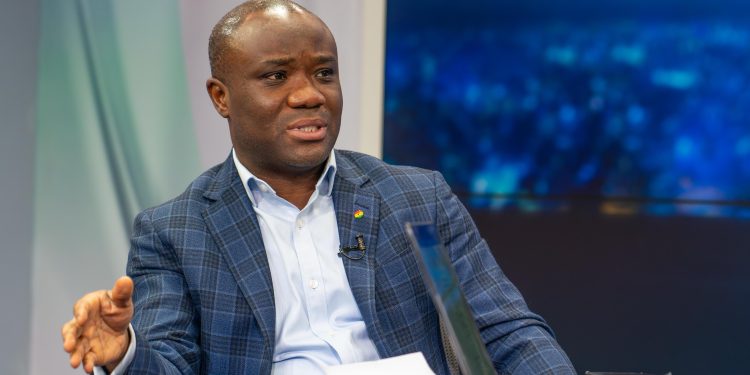
The Millennium Development Authority (MiDA), the agency overseeing Ghana’s Millennium Challenge Corporation (MCC) programs, has pledged its full support for Washington’s renewed efforts to align the MCC with America’s strategic interests under the Trump administration.
The announcement follows last week’s MCC Board of Directors meeting in Washington, where members reviewed the corporation’s global portfolio, selected new partner countries, and reaffirmed its results-driven development model.
Christopher Landau, U.S. Deputy Secretary of State and acting chair of the MCC Board, underscored the program’s importance to U.S. foreign policy. “MCC is an important tool to advance President Trump’s America First foreign policy agenda. With a focus on return on investment, an evidence-based approach, and a strict five-year implementation timeline, MCC ensures U.S. taxpayer dollars advance U.S. interests,” he stated.
Responding to the MCC’s policy direction, MiDA’s Chief Executive expressed Ghana’s readiness to align its project strategies with MCC principles. He emphasized MiDA’s commitment to initiatives that prioritize measurable impact, strict timelines, and value for money. “Ghana remains committed to transparency, private sector involvement, and delivering results that meet MCC’s standards,” he noted.
The renewed commitment comes against the backdrop of a setback in 2019, when Ghana lost access to $190 million in funds under the second tranche of the MCC Power Compact.
The suspension followed the collapse of a 20-year concession agreement with Power Distribution Services (PDS), which had been tasked with managing the Electricity Company of Ghana (ECG). The U.S. government deemed the deal non-credible, halting disbursement of the funds earmarked for energy sector reforms and infrastructure upgrades.
MiDA, which managed the Power Compact, played a key role in implementing reforms aimed at improving efficiency in the energy sector. The suspension was a major blow to Ghana’s reform agenda, particularly to efforts initiated under former President John Mahama to privatize electricity distribution.
Now, with renewed engagement, MiDA hopes to rebuild confidence and unlock new opportunities for collaboration with MCC. “We believe the foundations laid under the Power Compact still hold value,” the MiDA Chief Executive stressed, adding that Ghana is prepared to deliver reforms in line with MCC’s standards while contributing to U.S. strategic priorities.
As MCC reaffirms its commitment to rigorous, time-bound development partnerships, MiDA is positioning itself as a trusted partner capable of delivering sustainable results for both Ghana and the United States.
























































![[FREE FREE MONEY] Predict and Win a Guaranteed GH¢200 From Us EVERY WEEK](https://wordpress.ghanatalksradio.com/wp-content/uploads/2022/02/Predict-and-Win-Final-09-03-2021-218x150.jpg)
![[Predict & Win – 8th/Oct.] WIN A Guaranteed ¢200 From Us This Week](https://wordpress.ghanatalksradio.com/wp-content/uploads/2021/10/maxresdefault-16-218x150.jpg)
![[Predict & Win – 2nd] WIN A Guaranteed ¢200 From Us This Week](https://wordpress.ghanatalksradio.com/wp-content/uploads/2021/09/maxresdefault-50-218x150.jpg)
![[Predict & Win – 25th] WIN A Guaranteed ¢200 From Us This Week](https://wordpress.ghanatalksradio.com/wp-content/uploads/2021/09/maxresdefault-36-218x150.jpg)
![[Predict & Win – 18th] WIN A Guaranteed ¢200 From Us This Week](https://wordpress.ghanatalksradio.com/wp-content/uploads/2021/09/maxresdefault-23-218x150.jpg)









![[National cathedral] See full list of churches that have contributed since 2018](https://wordpress.ghanatalksradio.com/wp-content/uploads/2020/09/Ghana-National-Cathedral-GhanaTalksRadio-100x70.jpg)



